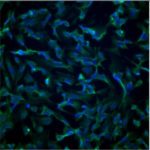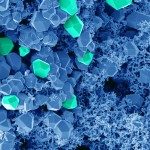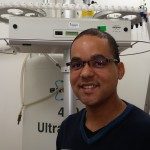About
EpiK- The Cytosine code as potent target to kill pathogens and fight human diseases
Today it is a major health need to find alternatives for increasing antibiotic resistance. Currently there is a large interest in the role of epigenetic changes in human diseases and great expectations from drugs bridling these changes. The epigenetic approach is a strategy of choice since it participates to gene regulation in living organisms and processes integrating the impact of the environment. Indeed, these modifications control genome activity and participate to modulate gene expression without altering the DNA sequence, contributing to cell plasticity in human, animals, plants and pathogens.
Today it joins concerted efforts of chemists, biologists and clinicians to explore alternative therapies.
The main epigenetic processes are DNA methylation, histone methylation, nucleosome positioning and noncoding RNA-associated silencing. Proteins involved in “writing”, “erasing” and “reading” of the chemical chromatin modifications conveying the epigenetic regulation have been identified and studied. Some inhibitors have been designed and are in clinical trials for cancer. Notably, two inhibitors of DNA methylation have been FDA- and EMA-approved to treat haematological cancers. Most studies have been conducted till now in cancer, but recently it has emerged that these modifications play a major role in other diseases, in particular in infectious diseases.
Beyond the four bases of DNA, a cytosine code, including 5-methylcytosine (5mC), 5-hydroxymethylcytosine (5hmC) and others bases, is emerging (Figure 2). These DNA modifications, by having an impact on genome activity of the pathogens, the hosts and the host-pathogens interactions, are potentially interesting as markers to detect and follow diseases, and as therapeutic targets.
The goal is to develop a method for mapping single molecule replication based on the nanoporous sequencing of neo-replicated DNA.
The mass spectrometry platforms available in Ile de France are dedicated to proteomics or metabolomics, and few propose a workflow to analyse a limited number of base modifications. The acquisition of this equipment and the establishment of a new research interdisciplinary pole at the interface of Chemistry and Biology in Paris will benefit the entire community of biologists of Epigenetics and interest the chemists of the nucleic acids field of Ile de France.
The campus needs urgently this kind of equipment that is dedicated to epigenetic research. It will add a great value and has the potential to attract other high-profile groups to the Institut Pasteur and in Ile de France. The acquisition of this equipment and the establishment of a new research interdisciplinary pole at the interface of Chemistry and Biology in Paris will benefit the community of biologists of Epigenetics and interest the chemists of the nucleic acids of Ile de France.
Coordinator :
Paola B. Arimondo
Engineer Frédéric Bonhomme
Partners
- Institut Pasteur Chimie Biologique Epigénétique / CNRS UMR3523
- Institut Pasteur Biologie des Interactions hôte-Parasite/ CNRS ERL9195, Inserm U1201
- Institut Pasteur Recherche Dynamique du Génome / CNRS UMR3525
- Institut Pasteur Chimie Bioorganique des Acides Nucléiques / CNRS UMR3523
- Institut Pasteur Chimie et Biocatalyse / CNRS UMR3523
- Institut Pasteur Dynamique Structurale des Macromolécules / CNRS UMR3528
- Institut Pasteur Chromatine et Infection
- Institut Pasteur Dynamique du Génome
- Institut Pasteur Parasitologie Moléculaire et Signalisation
- Ecole Normal Supérieure Institut de Biologie / CNRS UMR 8197 / INSERM U1024
- Institut Imagine Immunité intestinale / INSERM UMR_S1163 / Université de Paris, Université Paris Descartes
- INRAE Epigénétique et Microbiologie Cellulaire, Jouy-en-Josas
- Université de Paris, Epigénétique et Destin Cellulaire, CNRS UMR7216, Université Paris Diderot
- Unversité de Paris, CNRS UMR 8601, LCBPT, Université Paris Descartes
Planned quipment
Q Exactive™ Hybrid Quadrupole-Orbitrap Mass Spectrometer (Thermo Scientific) equipped with a nano spray ionization source, coupled to an (Thermo Scientific) Vanquish™ Flex UHPLC systems
Logiciel Compounds Discoverer 3.0
Fundings
Institut Pasteur (68%)
Région Ile de France (32%).



